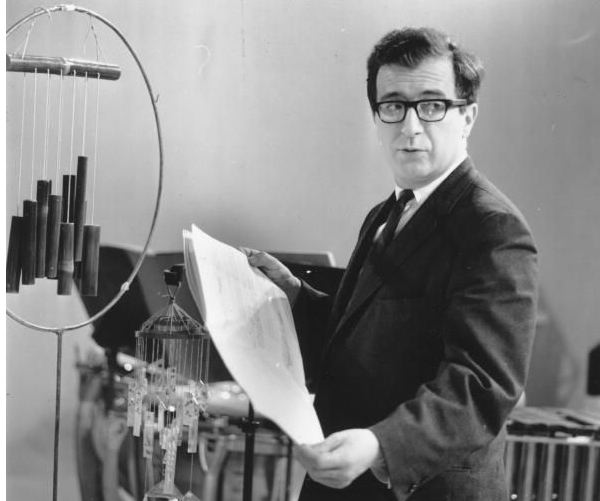American composer Tom Myron was born November 15, 1959 in Troy, NY. His compositions have been commissioned and performed by the Kennedy Center, the United States Holocaust Memorial Museum, the Portland Symphony Orchestra, the Eclipse Chamber Orchestra, the Atlantic Classical Orchestra, the Eastern Connecticut Symphony Orchestra, the Topeka Symphony, the Yale Symphony Orchestra, the Civic Orchestra of Chicago, the Bangor Symphony and the Lamont Symphony at Denver University.
He works regularly as an arranger for the New York Pops at Carnegie Hall, writing for singers Rosanne Cash, Kelli O'Hara, Maxi Priest & Phil Stacey, the Young People's Chorus of New York City, the band Le Vent du Nord & others. His film scores include Wilderness & Spirit; A Mountain Called Katahdin and the upcoming Henry David Thoreau; Surveyor of the Soul, both from Films by Huey.
Individual soloists and chamber ensembles that regularly perform Myron's work include violinists Peter Sheppard-Skaerved, Elisabeth Adkins & Kara Eubanks, violist Tsuna Sakamoto, cellist David Darling, the Portland String Quartet, the DaPonte String Quartet and the Potomac String Quartet.
Tom Myron's Violin Concerto No. 2 has been featured twice on Performance Today. Tom Myron lives in Northampton, MA. His works are published by MMB Music Inc.
FREE DOWNLOADS of music by TOM MYRON
Symphony No. 2
Violin Concerto No. 2
Viola Concerto
The Soldier's Return (String Quartet No. 2)
Katahdin (Greatest Mountain)
Contact featuring David Darling
Mille Cherubini in Coro featuring Lee Velta
This Day featuring Andy Voelker
|
|
|
|
| 
Wednesday, October 24, 2007
A Berio's Birthday Journey

Will it go 'round in circles? Berio checks his map circa 1964.
You cannot conceive music if you don't conceive a journey. You can travel to the most amazing places sitting in a chair or at a desk. I'm affected in a direct way by 'Ulysses,' one of the most amazing journeys that ever happened, whether written by Homer or by Joyce. It's complicated by the fact he was a liar. We don't know what really happened. The total design is so immense and beautiful we don't care.
For me, the first idea of a work is always global and very general. Then I define the details. But I don't believe that "first" ideas exist; and anyway, in the course of defining the details, I may discover new possibilities over which I decide to linger, though that doesn't change the nature or the motive of the project.
It's a bit like deciding to go on a journey, say to China. An idea of this sort can't suddenly appear out of nowhere, and it's not as if there is only one way of getting there. If the journey hasn't been arranged beforehand in Peking by a group of bureaucrats, and I'm free to go there as I please, then the journey can become a source of interesting discoveries. On the way I can decide to stay one place longer than I had envisaged and I might even plan to return there by a completely different route. And then, as absurd as it may sound, I'll walk home from China or at most cycle back. I don't want to miss the details of the countryside and the cities that I'd flown over on the way out.
I don't like stochastic journeys which pay attention only to the general form, but not to the concrete relations that may responsibly be realized within it. In the same way I don't like architects who become set designers; they come up with a good design, give it to the theater, and impatiently wait for those poor people in the scenographic workshop to make it up. And I don't like architecture that lacks precise functions and doesn't respect the life, the ideals and the work of ordinary people. I prefer a Park Avenue skyscraper that is free from ideals (not too free though) to the Pyramids of Egypt.
Luciano Berio
posted by Tom Myron
|
| |



